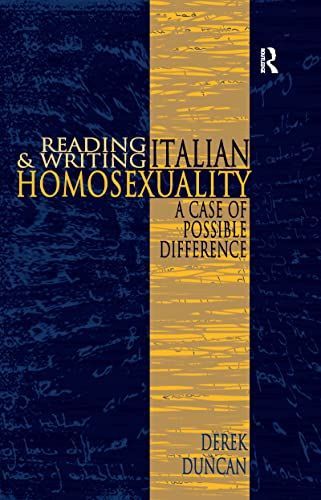
Reading and Writing Italian Homosexuality A Case of Possible Difference
Derek Duncan's timely study is the first book in English to examine constructions of male homosexuality in Italian literature. In admirably clear and elegant prose, Duncan analyzes texts ranging from the 1890s through the 1990s. He brings canonical authors like D'Annunzio and Pasolini together with under-appreciated writers like Comisso, and also looks at less conventionally literary genres. Duncan takes on the thorny theoretical issues surrounding questions of gay identity and also provides a sound historical context for his discussion of how Italian narrative sheds light on Italian homosexuality and on the broader issues attending contemporary sexuality, including complicating factors such as race. While the early texts considered were produced at a historical moment when 'homosexuality' as a culturally meaningful entity had yet to crystallize, recent autobiographies show the authors reflecting explicitly on questions of gay identity and what it means to be a homosexual male in present-day Italy. In charting the emergence of the homosexual in twentieth-century Italy, however, Duncan's focus is less on questions of identity than on the meaning attributed to sex between men in the broader cultural context. His book is a significant contribution to Italian literary criticism and to gender, gay, and cultural studies.